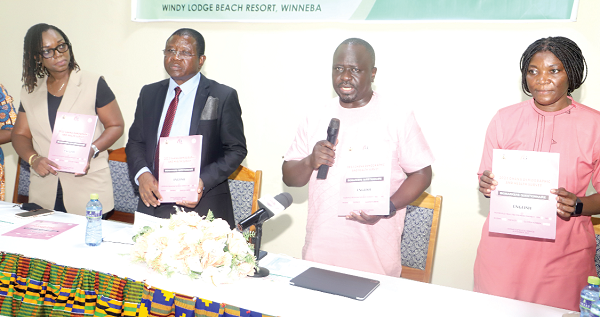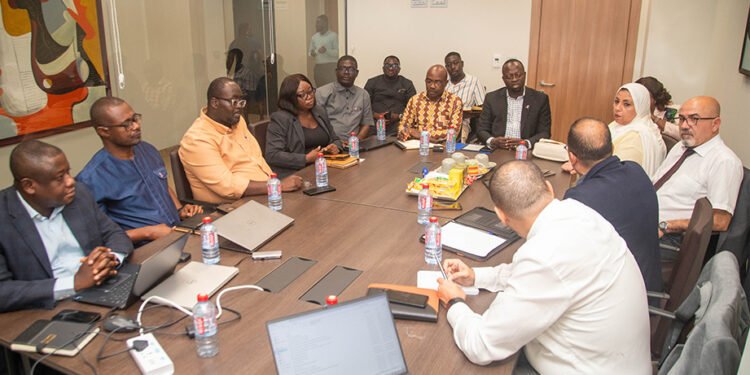The Ghana Statistical Service (GSS) is ready to commence this year’s Demographic and Health Survey across the country.
The exercise, to be done by 200 field workers, is expected to commence tomorrow, Monday, October 17, 2022, and targeted 18,540 households across the country.
Speaking at the launch of the 2022 Ghana Demographic and Health Survey at Winneba in the Central Region of Ghana, Professor Samuel Kobina Annim, Government Statistician, advised field officers for this year’s Demographic and Health Survey to exhibit high sense of professionalism in the discharge of their work.
The field officers are expected to adhere to the United Nations principles of quality statistics which include: relevance, impartiality, and equal access, professional standards and ethics, and accountability and transparency.
Prof. Annim said the survey was designed to provide data for monitoring the health situation of the population in the country.
The primary objective of the survey, he stated, was to provide up-to-date estimates of basic demographic and health indicators.
The field enumerators will collect data on malaria, fertility levels, marriage, sexual activity, fertility preferences, awareness and use of family planning methods, breastfeeding practices, nutrition, childhood mortality, and others.
Prof. Annim said the field officers were put through rigorous training both in theory and practice to deliver on their responsibilities. On their parts, the participants pledged to conduct a successful exercise.
As such, the Government Statistician urged the public to cooperate with the officers by providing complete and accurate information to ensure a successful survey.
Dr Kerzia Malm, Programme Manager, National Malaria Control Programme, commended the GSS for the collaboration especially, for including malaria as part of the indicators.
She expressed optimism that the survey would provide information on malaria for policy decisions and help to achieve the Sustainable Development Goals. The cost of the survey is estimated at 4.2 million dollars.
Major collaborating partners of the survey
It is funded by the U.S. Agency for International Development (USAID), the Global Fund, the United Nations Children’s Fund, the World Health Organization, the United Nations Population Fund, the International Labour Organization, the Danish International Development Agency, and the government of Ghana.
The USAID uses data to drive its decisions and influence progress towards its goals of preventing child and maternal deaths and controlling the HIV/AIDS epidemic.
For over 30 years, USAID has pioneered The Demographic and Health Surveys Program (DHS Program). The DHS Program provides technical assistance for the implementation of more than 320 household and facility-based surveys in 90 countries across Africa, Asia, Latin America/Caribbean and Eastern Europe.
Data collected through the DHS Program have deepened and transformed our understanding of population, health and nutrition issues around the world.
The DHS Program exemplifies the Agency’s commitment to building the evidence base to support effective program and policy making while ensuring data openness and transparency. Data collected by the DHS Program allow USAID to monitor trends across health program areas and set priorities for funding, interventions and policy changes.
READ ALSO: Cyber Security Is a Personal Decision – Maximus Ametorgoh






















